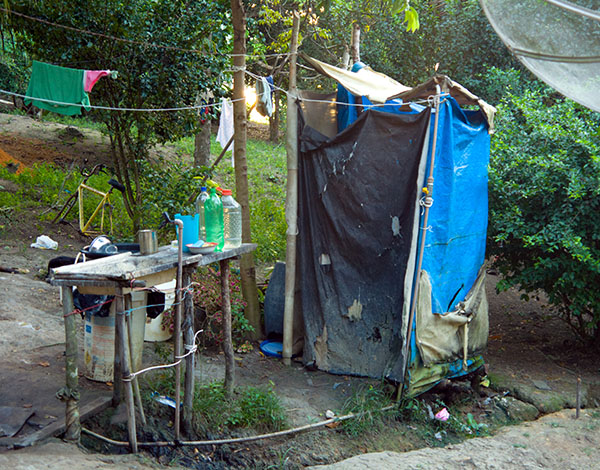Brazil still has no sustainable cities
June 28, 2017 10h00 AM | Last Updated: July 18, 2017 04h06 PM
Along the national territory, the analysis of the condition of the housing units and areas where they are located points out that Brazil is far from having sustainable cities. The proliferation of irregular tenure and housing units with inappropriate infrastructure are issues that leverage the problems of the major urban centers.
"In highly concentrated areas, the impact on the urban center is proportionally much bigger than in those with a smaller number of inhabitants, who are better distributed in the space", explains Maria Lúcia Vilarinhos, geographer of the IBGE.
Such reality can be better understood by viewing the maps of the National Digital Atlas 2017 released by the IBGE, which includes a section on "Sustainable Cities". This section is based on item 11 of the Sustainable Development Goals - SDGs established by the United Nations - UN, aimed at making cities and human settlements inclusive, safe, resilient and sustainable.
According to Maria Lúcia, the major cities have the biggest percentages of appropriate housing units, including, for example, garbage collection and basic sanitation. On the other hand, these same places concentrate a large number of housing units with inappropriate infrastructure, a problem leveraged by the significant number of inhabitants who live in a single area.
"[In the major cities], the best quality lives together with the worst. It is a structural phenomenon in Brazil, existing in the whole territory. By attracting population, the cities overcrowd its surroundings and produce precariousness, as it is not a planned growth. This event is not so predominant in smaller municipalities", assessed her.
For Maria Lúcia, Brazil is still far from having sustainable cities. "Mobility, accessibility, garbage destination, adequacy of housing units, democratization of the management of public spaces and participation of women in power structures are factors that show that we are far from the minimally desirable sustainability".

Improvised bathroom, in Porto Seguro (BA)
Text: Marcelo Benedicto
Images: Licia Rubinstein




















